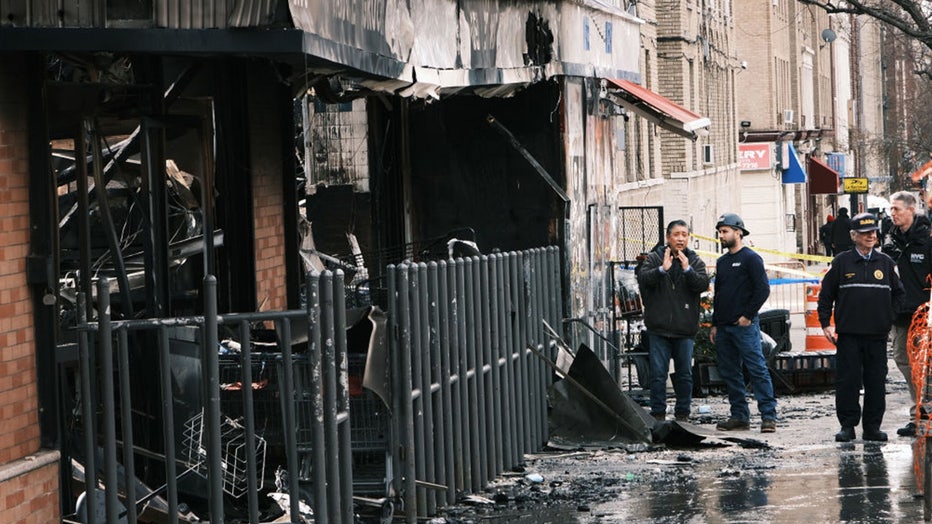Illinois lab aims to end NYC lithium-ion battery fire nightmare

Inside the lab fighting to end NYC e-bike battery fires
So far in 2023, 76 lithium-ion battery fires have been recorded, killing seven people and injuring 60. FOX 5 New York visits UL Solutions, a lab in Illinois that is working to try and make lithium-ion batteries safe and stop the city's fiery nightmare.
What was once an emerging threat has become a full-blown crisis in New York City with 220 lithium-ion battery fires recorded last year, equaling to about one every 36 hours.
So far this year, 76 fires have killed seven people including two this past weekend in Washington Heights.
With 60 people injured, the city is outpacing all of last year. The vast majority of fires are in the homes of the 65,000 delivery bikers who live across the five boroughs.
One of the solutions to the city's dilemma is over 800 miles away at the UL Solutions laboratory for battery testing in Northbrook, Illinois, outside of Chicago.
Dr. Robert Slone is the chief scientist and the man behind making lithium-ion batteries safe.
For batteries to receive a UL logo, it has to endure what is called "torture testing." But experts said the problem in New York is uncertified batteries, often cobbled together in the black market.

FILE - Fire officials and others gather outside of a Bronx supermarket the day after a 5-alarm fire tore through a market that fire officials are blaming on a faulty lithium-ion battery on March 06, 2023 in New York City. (Spencer Platt/Getty Images)
They describe how, if assembled by a non-professional and goes untested, the cells in a battery can short circuit in a number of ways.
"That can be vibration. Resistance is poor within the battery. The design and tolerances are not sufficient. The charger is not well matched to the battery and overcharges or keeps charging even when the battery is 100%," Slone told FOX 5 New York regarding the breakdown of a cell.
"It's the battery unleashing all of that tremendous energy that you usually put to good, productive use in this case actually being unleashed in an uncontrolled manner. So it's heat, it's smoke, it's chemicals coming out," he added.
In March, Mayor Eric Adams signed two bills aimed at curbing lithium-ion battery fires.
Among other things, it prohibits the sale, lease or rental of e-mobility devices that fail to meet safety standards. That includes untested and uncertified batteries.
Experts, including Slone, applaud the move while reminding consumers to pay attention whether their battery is certified or not.
"If you see swelling or overheating of the battery, if there's heating, even when the battery is 100% charged and you've left it on the charger for a while, those are telltale signs that that battery is compromised," Slone said.

